
views
Popular German Slang

Alles klar “Klar” is German for “clear.” Thus, the slang term “alles klar” can be used to ask someone if they’re okay—or say that you’re all good (depending on whether you use “alles klar” as a question or statement). Pronounced: Ah-less klarr Example: “Hi. Alles klar?” (“Hi. All good?”)
Alter Alter can mean several different things—but, in terms of German slang, it means “dude” or “mate.” It’s typically used as a casual greeting for friends or a way to cut into a conversation and grab everyone else’s attention. Pronounced: Al-tah Example: “Alter! Ich habe tolle Neuigkeiten! (“Dude! I have great news!”)
Assi “Assi” is actually the abbreviated form of “asozial,” which is German for “antisocial.” When used as slang, “assi” essentially means “trashy” (or “chavvy” in British English). It’s intended to describe someone’s personality negatively—for being rude, impolite, or uneducated, for example. Pronounced: Ah-see Example: “Sie ist sehr assi.” (“She’s so trashy.”)
Auf den keks gehen This slang phrase means “You’re getting on my nerves,” although the literal translation is “You are getting on my biscuit!” You can use it to tell someone when they’re doing something that’s bothering you. Pronounced: Owf den keks gay-hen Example: “Schluss damit! Auf den keks gehen!” (“Enough of this! You’re getting on my nerves!”)
Aus der Reihe tanzen The literal translation for this phrase is “dancing out of line,” and it’s used to describe people who are quirky, rebellious, or act outside the norm in some way. It can be spoken positively or negatively, depending on who it’s describing. Pronounced: Ows der rye-huh tan-zen Example: “Sie ist Aus der Reihe tanzen.” (“She is quirky.”)
Auf jeden fall This phrase means “In any case.” It’s mainly used to wrap up whatever you’re talking about. Additionally, you can remove the “fall” and just say “Auf jeden” without changing the phrase’s meaning. Pronounced: Owf yey-den fahl Example: “Auf jeden Fall sind das meine Gedanken.” (“In any case, here are my thoughts.”)
Besserwisser “Besserwisser” literally means “better knower,” making it the German version of “know-it-all.” You can use it when referring to people who act like they know everything (or, at least, more than everyone else around them). Pronounced: Bess-ah-viss-ah Example: “Du bist ein Besserwisser!” (“You’re a know-it-all!”)
Bock haben “Bock haben” is a colloquial term for “feel like,” meaning you want something or want to do something. “Bock” is actually from a language called Rotwelsch, which was spoken by people on the fringes of society around Germany, Switzerland, and Austria. “Bokh” was originally a Romani word for “hunger.” Pronounced: Bok hah-b’n Example: “Ich Bock haben zu essen.” (“I feel like eating.”) The more formal version of this phrase is “lust haben.”
Hammer “Hammer” is basically a superlative; in German slang, you can add it to other words as a way to emphasize them, just like you’d use “extremely,” “super,” “cool,” or “awesome.” For example, “hammergeil” means “really great’ in German, and “hammer-angebot” is a “super deal” (like you’d find in a store advertisement). Pronounced: Hah-mah Example: “Ich habe ein Hammer-Bußgeld.” (“I got a huge fine.”)
Hau ab “Hau ab” is a slang phrase meaning “Get lost!” It’s a common way to express anger toward someone and tell them to leave you alone. Pronounced: How ahb Example: “Hau ab, pfosten!” (“Get lost, idiot!”)
Ist gebongt “Ist gebongt” is a slang expression of agreement, the same way you’d say “okay” or “okey-dokey” in English. “Bongen” is a verb referring to settling a transaction (specifically by ringing something up on a cash register). Pronounced: Ist geh-bohng’t Example: “Ist gebongt, ich kann abhängen.” (“Sure, I can hang out.”)
Mach’s gut “Mach’s gut” is a casual goodbye used around friends and family, meaning “take care” or “have a good one” in German slang. Its literal translation is “make it good” or “do it well.” Additionally, “Du auch” is German for “you too,” which is a possible response to “Mach’s gut.” Pronounced: Mahs goot Example: “Später, Mach’s gut!” (Later, have a good one!”)
Mahlzeit “Mahlzeit” is slang for “good morning” (or a simple “hey!”). It literally means “mealtime,” originating from the German formal greeting “Gesegnete Mahlzeit” (which, in turn, means “blessed mealtime”). Pronounced: Mal-zite Example: “Mahlzeit! Alles klar?” (“Good morning! Are you good?”)
Moin moin “Moin moin” is a shortened term for “Guten Morgen,” which means “good morning.” It’s particularly popular in northern Germany, where “Moin moin” is a casual greeting among friends. It can also be used to say “hi” and “goodnight,” depending on the time of day. Example: “Moin moin! Was ist los?” (“Good morning! What’s up?”)
Na “Na” is another example of a super versatile slang term. It can mean “Hey” or “‘Sup” as a greeting, in addition to being an abbreviation of “What’s up?” In fact, you could have a simple exchange with someone in German using only “Na”! Example: “Na. Wie geht es Ihnen?” (“Hey. How are you?”) An elongated “Na” is typically a question (“Hey, how are you?”), while a shorter “Na” is a response (“Hey, I’m okay.”)
Na ja “Na ja” essentially means “well” or “oh, well” in English. You might use it at the beginning of a statement when you disagree with someone (or just want to soften whatever else you’re about to say). Pronounced: Nah ya Example: “Na ja, ich stimme nicht zu.” (“Well, I disagree.”)
Servus “Servus” is another slang term for both “goodbye” and “hello,” particularly in Bavaria (which is a region in southern Germany). It’s definitely a casual term, so reserve it for friends and people you’re familiar with. Pronounced: Zehr-voos Example: “Servus, Mach’s gut!” (“Goodbye, have a good one!”)
Spinnen “Spinnen” is an informal slang term that roughly means “I’m going nuts” or “I’m losing it” in English, although its literal translation actually refers to a spider’s web! Pronounced: Shpi-nen Example: “Ich glaube, ich spinne!” (“I think I’m losing it!”)
Quatsch “Quatsch” is a slang term meaning “nonsense.” It comes from the verb “quatschen,” which means “to talk nonsense.” You might use this word when you think someone is saying ridiculous things or talking trash. Pronounced: Kvatch Example: “Das ist völliger Quatsch!” (“That’s utter nonsense!”)
Zwielicht While the literal translation of this word is “twilight,” it’s used in German slang to describe someone suspicious or untrustworthy—the same way you might refer to someone as “shady” in English or “dodgy” in British English. Pronounced: Svee-leek’t Example: “Er wirkt zwielichtig.” (“He seems shady.”)
German Slang Words
There are too many German slang words to count—but below, we’ve included an extensive collection of the more common ones. You’ll find a little bit of everything here, from words referring to family members (like Mom and Dad) to descriptive words you might use when talking about someone (like “cheeky” and “cute”). German slang words include: Abdrehen (ahb-dree-enn) - To go wild Abklatsch (ahb-lahtsh) - A cheap copy of something Babbeln - (bahb-eun) - To babble Bespaßen (besh-spa-tzen) - To entertain, keep someone entertained Betucht (beh-tookt) - Well to-do, very rich Betüddeln (beh-too-deyn) - To look after someone Betuppen (beh-too-pen) - To cheat, trick Blechen (bly-hen) - To pay involuntarily for something Bolzen (boll-tzen) - To play soccer, kick the ball about Bonze (bohn-tzuh) - Rich person Brüller (broo-luhr) - A really funny joke, a hoot Bummeln (buhm-eln) - To stroll, dawdle, take your time Büx (byks) - Pants Chillig (chill-izh) - Relaxed, chillin’ Fachsimpeln (fok-zim-puln) - To talk shop with someone Faxen (fak-sen) - Shenanigans Flunsch (fluhn-sh) - Pout Funzen (foon-tsen) - To function, to work Gewieft (guv-eeft) - Cunning, fly, crafty Glitschig (glit-shizh) - Slimy, slippery Hingucker (hin-koo-kah) - Eye catcher Keck/Kess (kek/kehss) - Cheeky Kiddies (kid-dees) - Children Kieken (kee-kenn) - To look Kladderadatsch (klad-er-ah-datsh) - A mess Klette (klet-tuh) - Someone clingy Knabbern (k’nab-burn) - To nibble, munch Kneipe (k’neye-puh) - A bar Knuspern (k’nus-pahn) - To crunch Kohle (koo-luh) - Money Lachflash (lak-flash) - A laughing fit Malochen (mal-oh-ken) - To work hard Mampfen (mahm-fen) - To munch Mutti (Moo-tee) - Mom Naschis (nas-ki) - Sweets Nucki (nuh-kee) - Pacifier Papperlapapp (pahp-ah-lah-pahp) - Nonsense, rubbish Paps (pahps) - Dad Perso (pel-zo) - ID, identification Pille-Palle (pill-uh pal-uh) - Easy peasy Prio (pree-oh) - Priority Posemuckel (poh-zeh-muck-uhl) - A random and remote place Putzig (put-zeszh) - Cute Quali (qwal-ee) - Quality Rabauke (rab-ow-kuh) - Rogue, ruffian Ranklotzen (rahn-klot-zen) - To get with it, work hard, grind Räudig (rye-dee) - Disgusting Ruckzuck (rook-zook) - Really fast Saugen (zow-gehn) - To download Scheppern (shep-ahn) - To clank, clatter Schlingel (shling-el) - Rascal, scamp Schmollen (shmohl-len) - To pout Sich kabbeln (zeek kab-ehn) - To squabble, argue Snacken (shneck-en) - To snack Telen (tay-len) - To call, phone Versifft (veh-zift) - Filthy Vorglühen (voh-gloo-en) - To pre-game (drink before going out) Zocken (zoh-ken) - To play
German Slang Phrases
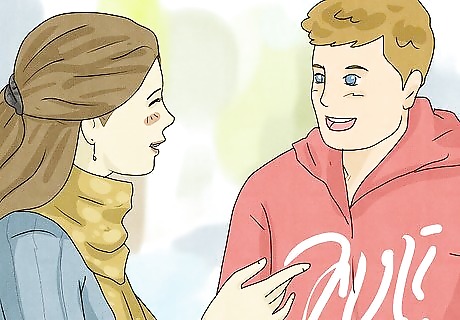
Now, let’s cover common German slang phrases—including greetings, goodbyes, and statements containing multiple words. These slang phrases are: Alles gute zum geburtstag - Happy birthday Literally means “All the best for the birthday” Auf dicke hose machen - Showing off or acting arrogantly Literally means “To act like you have fat pants on” Bissel (bee-sel) - A little Blagen (blah-gn) - Annoying children Boah (boe-ah) - Wow! Bölken (bel-ken) - To yell Die nase voll haben (dee naz-uh vohl hab-eun) - To be annoyed or sick of something Literally means “To have your nose full” Ei Gude! (Eye goo-duh) - Hello/goodbye (interchangeable) Eine Klatsche haben (Eye-nuh klaht-zuh hab-eun) - To be wild Etwas peilen (eyt-vas pal-en) - To understand something Für Lau (feur laow) - For free Grüß Gott! (guh-rooz goht) - Good day Grüezi/Grüessech (groo-et-zi, groo-eh-zek) - Greetings (hello) Hallöchen (hah-leu-hen) - Hello, hello there Hast du sie nicht mehr alle? (hahst doo zee nikt meer al-uh) - Have you lost your mind? Igitt (ee-git) - Urgh, yuck Jein (y’ine) - Yes and no (interchangeable) Lällebäbbel (lel-bay-bel) - Fool Lällegschwätz (ley-leg-shvetz) - Babble, chitchat Lütt (loot) - Small Menno (meh-noe) - Man (in an unsatisfied manner) Moin/Moinsen (mine, mine-zen) - Hello, good morning Nee - Nope Passt schon (pahst shun) - It’s fine Pfui (foo-ee) - Urgh (expression of disgust) Tach (tahk) - Hello Was geht? (vas gey’t) - What’s up? Was für ein Prachtexemplar (vas foor ine prakt-exemplar) - What a beauty!
German Slang Insults
There are plenty of slang insults in German (for when you’re annoyed with someone or joking around with a friend). Just remember that insults can be hurtful, and it’s important to be very mindful of when you use them—no matter how annoyed you are! German slang insults include: Balla-balla (bah-la bah-la) - Coo-coo, crazy Dulli (doo-lee) - Someone helpless or clumsy Dumme Nuss - Dummy (literally means “dumb nut”) Etepetete (ey-teh-puh-tey-tuh) - Fussy, stilted, hoity-toity Faulpelz (fow-el-pelz) - Lazy bones, lazy person (literally means “lazy fur”) Förster (fohr-shter) - Idiot Hirni (heur-nee) - Idiot Horst (hohrst) - Idiot Intelligenzbestie (kool) - Egghead (literally means “intelligent beast”) Kleinkariert (kline-kar-ee-eut) - Small-minded (literally means “small plaid-patterned”) Komischer Kauz (koh-mee-sher kowtz) - Weirdo (literally means “funny owl”) Lusche (loo-shuh) - Loser Pfosten (p’fos-tuhn) - Idiot
German Slang for “Cool”
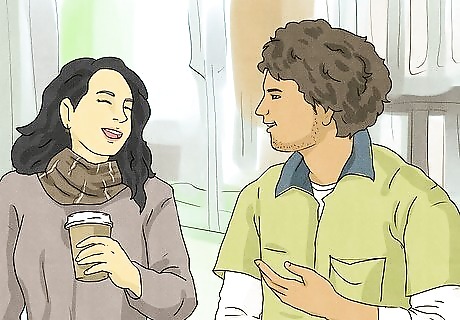
There are many different words for “cool” in English—and the same is true for German! In fact, you might be surprised by how similar some German slang words are to their English equivalents. It shows that English and German aren’t as different as you might think (especially since they’re both Germanic languages). Bombe (bom-buh) - Bomb, the bomb Geil (gile) - Cool, hot Genial (gayn-yahl) - Awesome Krass (krahs) - Cool, rad Kuhl (kool) - Cool Lässig (lye-sig) - Casual Mega (meh-gah) - Mega Nice (nie-ss) - Nice Stark (shtahk) - Strong Super (soo-par) - Cool
German Slang Expressions
Expressions refer to anything that can be represented through words and other symbols. In German slang, there are expressions for everything from a person with bad eyesight to someone with a sweet tooth! These expressions include: Aalglatt (Ahl-glaht) - Slick, slippery Abgespaced (Ab-guh-spaced) - Wild (literally means “spaced out”) Abgefahren (ab-guh-fahrn) - Wicked, crazy (literally means “driven off”) Auf keinsten (owf kine-sten) - Not at all, no way Backpfeife (kool) - Slap in the face (literally means “cheek pipe”) Blindfisch (blinn’d fish) - Someone with poor vision (literally means “blind fish”) Blitzmerker (blitz mehr-kar) - Someone who is slow to notice something (literally means “a flash noticer”) Büffeln (beuf-eun) - Study (literally means “buffalo”) Durchkauen (deuy-kow-en) - To talk about something repeatedly (literally means “chew through”) Fackeln (fak-eun) - To hesitate (literally means “to flicker”) Ferkeln (fair-keun) - To have a child (literally means “to bear piglets”) Hosenstall (hoe-zen-shtall) - Fly (on pants) (literally means “stable of the pants”) Kein Ding (kine ding) - No problem (literally means “no thing”) Kein Plan (kine plan) - No idea (literally means “no plan”) Keine Ahnung (kine-uh ah-nung) - No idea (literally means “no suspicion”) Kopfkino (kopf-kee-noe) - Head game (literally means “mental cinema”) Krawall (krah-vall) - Riot, turmoil Kreischi (kry-shee) - A screaming fan (literally means “screamy”) Labertasche (lah-bur-tash-uh) - Chatterbox (literally means “talk bag”) Naschkatze (nash-kat-zuh) - Someone with a sweet tooth (literally means “a munching cat”) Pumpen (poom-pun) - To work out (literally means “to pump”) Remmidemmi - Turmoil Schnattern (shnat-eun) - Chatter, talk quickly (literally means “to gaggle”)
German Expressions of Excitement
When you’re so excited (and you just can’t hide it), you can use one of the German slang expressions below to convey your feelings. Expressions of excitement include: Aber hallo (ah-bah hah-low) - Definitely (literally means “but hello”) Ach wie schön (ak vee shoon) - Nice (literally means “oh how beautiful”) Das ist super! (Dahs ist soo-pehr) - That’s great! Hurra (hoo-ra) - Hooray Jippi (ji-pee) - Yippee Juhu (yoo-hoo) - Yay Klaro (klahr-oh) - Sure (literally means “clear-oh”) Klasse (klass-uh) - Great (literally means “class”) Wunderbar (voon-duh-bahr) - Wonderful
German Idioms
Idioms are phrases with a literal meaning that’s different from the actual, figurative meaning (like “Break a leg,” in English, which really means “Good luck.”) The German language contains plenty of different idioms, just like English! They include: Affentanz - Fuss Pronounced: Ah-fen-tahnz Literally means “Monkey dance” Alles paletti - Everything is okay Pronounced: Al-ess pah-let-tee Literally means “All pallets” Auf jemanden abfahren - To fall for someone Pronounced: Owf yeh-man-den ab-fah-ren Literally means “To drive off on somebody” Auf links waschen - To wash inside out Pronounced: Owf links vash-en Literally means “Wash on the left side” Bombenwetter - Clear weather Pronounced: Bom-ben-vet-ter Literally means “Bombing weather” Da haben wir den Salat! - There we have it! Pronounced: Dah hahb-en vir den sah-lat Literally means “There we have the salad” Das ist doch assi - That sucks Pronounced: Das ist dok ahs-si Literally means “That’s assiduous” Das leben ist kein ponyhof - Life can be difficult and challenging Pronounced: Das leeb-en ist kine pohn-ee-hof Literally means “Life isn’t a place for riding ponies” Die beleidigte Leberwurst spielen - To be in a huff Pronounced: Dee bel-eye-dig-tuh lee-ber-vurst sphpeel-en Literally means “Playing the offended liver sausage” Falsche Schlange - Someone who’s untrustworthy Pronounced: Fie-shuh shlan-geh Literally means “False snake” Für die Katz’ sein - To be all for nothing Pronounced: Fur dee katz sine Literally means “For the cat” Grottenschlecht - Terrible Pronounced: Grot-en-shlekt Literally means “As bad as a grotto” Häufchen Elend - Someone miserable Pronounced: Huy-fen eel-end Literally means “Heap of misery” Ich verstehe nur Bahnhof - I understand none of this Pronounced: Eek versh-tee noor bahn-oof Literally means, “I understand only train station” Jetzt geht’s um die Wurst - It’s now or never Pronounced: Yetz gehtz uhm dee vurst Literally means, “Now it’s all about the sausage” Klarschiff machen - To clean up Pronounced: Klar-shif mak-eun Literally means “Clear the ship” Knall och Fall - All of a sudden Pronounced: Nall ohk fahl Literally means “Bang after the fall” Mach mal halblang - Calm down Pronounced: Mak mahl hal-blahn Literally means, “Make it half the length” Nicht alle Tassen im Schrank haben - To be wild Pronounced: Neekt al-uh tah-sen im shrahnk ha-beun Literally means “Not have all the cups in the cupboard anymore” Nur ein schwein trinkt allein - An encouragement to join others when drinking Pronounced: Noor ine shvine trink’t all-ine Literally means “Only a pig drinks alone” Nicht die Bohne - Not at all Pronounced: Neekt dee boenn Literally means “Not the bean” Pi mal Daumen - Approximately Pronounced: Pee mal-uh dow-men Literally means “Pi times thumb Pipapo - With all the trimmings Pronounced: Pee-pah-poe Seinen Senf dazu geben - To add your two cents Pronounced: Zy-nen zenf dat-zu gee-ben Literally means “To add one’s mustard” Sich einen abbrechen - To try too hard Pronounced: Zeekt eye-nen ab-rek-ay-hen Literally means “To break something off” Sich in die Haare kriegen - To argue Pronounced: Zeek in dee hah-ruh kree-gen Literally means “To get into each other’s hair” Sich vom Acker machen - To leave Pronounced: Zeek vom ak-ehr mah-hen Literally means “Get away from the field”
Why It’s Important to Know German Slang
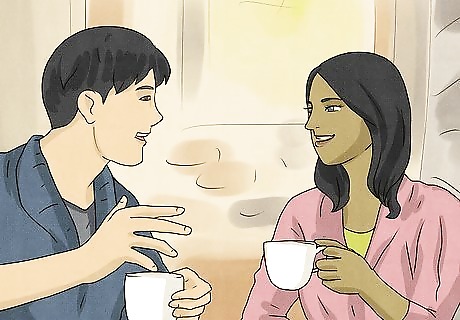
German slang can help you build your language skills. Textbooks can’t hold every German word, especially popular slang. While you can absolutely develop your grammar and overall ability to speak German from a textbook, slang mainly comes from interacting with people who primarily speak German. The more you chat with German speakers in their language, the better your language skills will be. Many German slang terms also don’t follow the phrase's literal translation. By learning slang, you can better grasp the language’s nuances and figurative meanings.
German slang can help you understand the language and culture. In other words, learning German slang can tell you about German speakers’ social lives, activities, and values—the things that are most important (or at least relevant in day-to-day conversations). Some slang words also have roots in German history and the local cultures that make up modern-day Germany. Because slang words evolve with the times and trends, learning them can help your German language skills stay up-to-date and relevant!
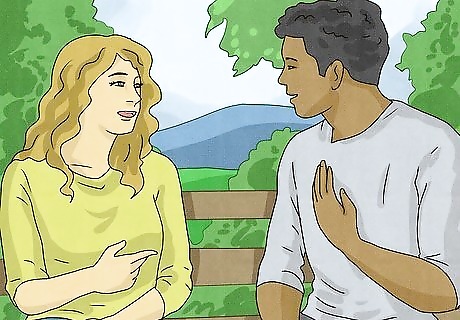
You can have fun conversations with German slang. Every language has some funny-sounding slang words, and German is no exception. Slang is modern and a little off-beat, which is part of the appeal! By using German slang, you can make your conversations a little more enjoyable while sounding like a native German speaker at the same time. You can also better understand German TV shows, movies, and music, all of which are likely to use slang words here and there.
Frequently Asked Questions About German Slang
Which German expressions mean happiness? You can use “Hurra,” “Jippi,” and “Juhu” to express excitement in German. Additionally, words that mean “happy” include “froh,” “freudig,” “fröhlich,” and “glücklich.”
What German slang means goodbye? “Servus” and “Mach’s gut” are both covered above as potential farewells. Other casual ways to say goodbye in German include “Bis dann” (“See you then”), “Tschö” (“Bye”), “Bis später” (“See you later”), and “Tschüß” (“Goodbye”).
What is “bro” in German slang? “Alter” (covered above) can be used to say “bro” in addition to “dude” and “mate.” Additionally, “Kumpel” is a slang word for “friend,” “dude,” or “bro.”
What does “krauts” mean in German? The literal translation is “herb” or “plant,” but it can also be a slang term for Germans. However, “krauts” is now considered outdated and offensive to many Germans.
Are German facial expressions hard to understand? Not particularly; Germans tend to use similar facial expressions to English speakers. For example, a German speaker might smile to show warmth and friendliness, wink to flirt, or purse their lips when thinking.












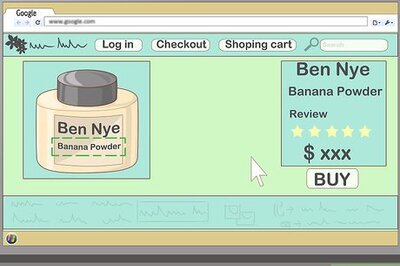
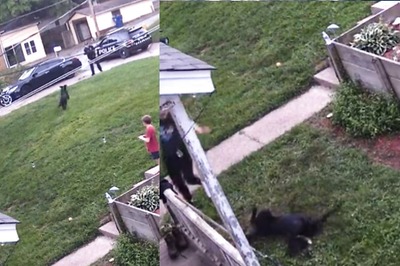




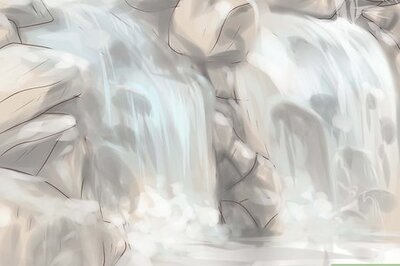

Comments
0 comment